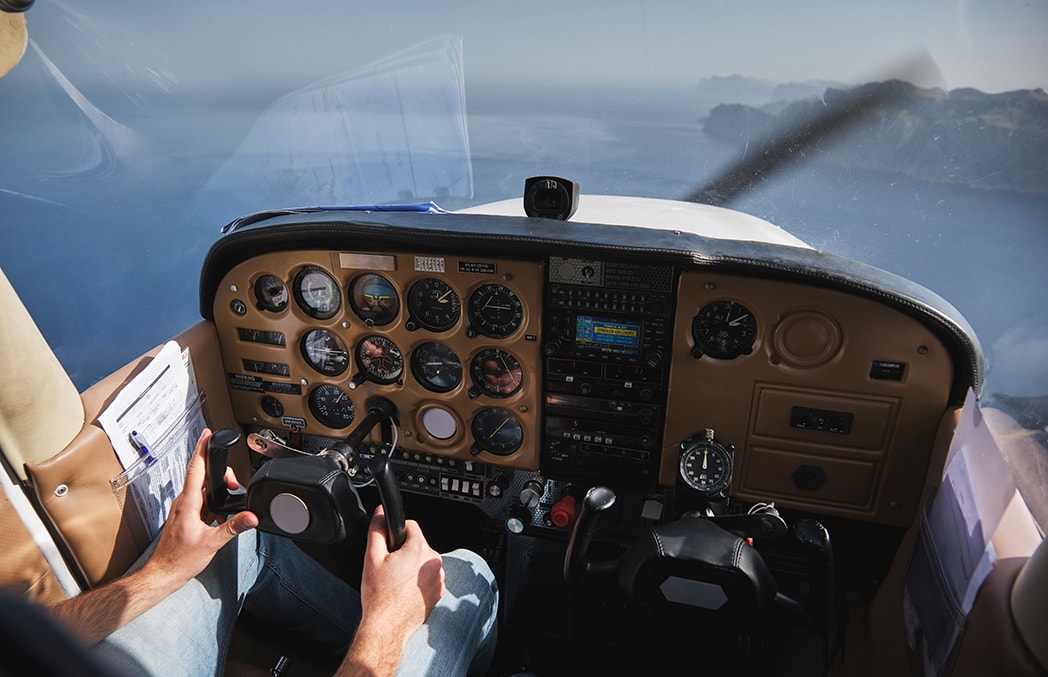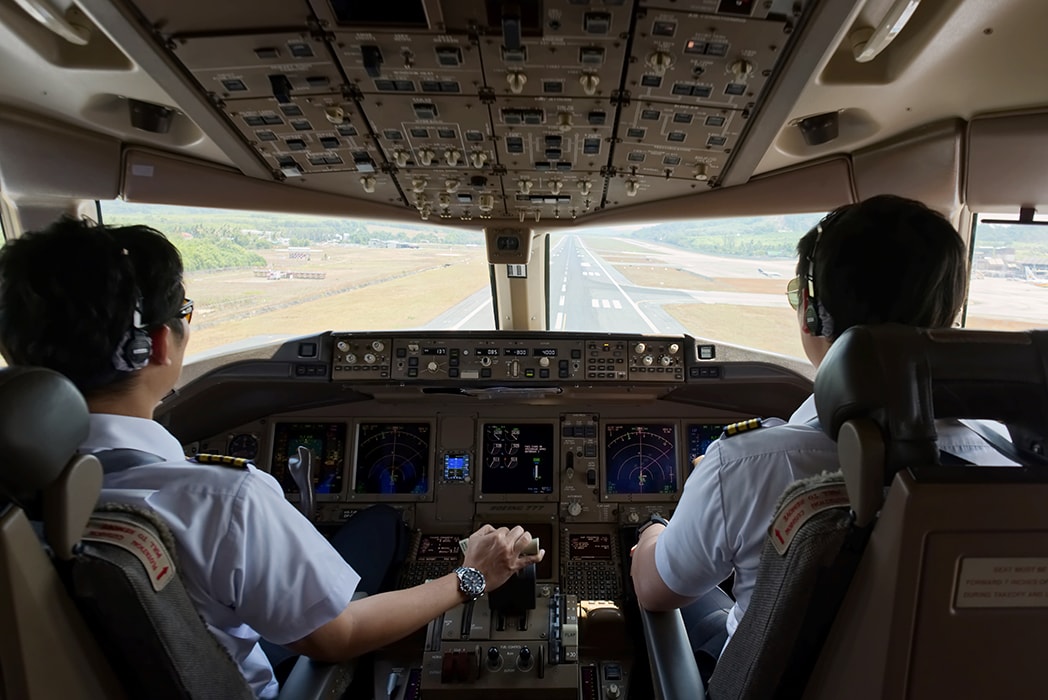Does a Pilot's License Expire? Renewal Guide
Jun 13, 2025
Does a pilot’s license expire? The short answer is no; a pilot’s license doesn’t expire like a driver’s license. Once you get it, it’s yours for life.
But to fly legally you have to meet ongoing requirements such as having a valid medical certificate, regular flight reviews and specific currency requirements. This article will walk you through those.
Key Takeaways
-
Pilot licenses don’t expire but you have to comply with medical, flight review and currency regulations to fly.
-
Medical certificates are for pilot safety; renewals vary by class and age to ensure pilots are healthy.
-
Flying without meeting regulations can get you in serious legal trouble, fines and even criminal charges.
Duration of a Pilot's License
You might think a pilot’s license has an expiration date like a driver’s license. But it doesn’t. Once you get it, it’s yours for life. But don’t get too comfortable. A pilot’s license is only valid as long as you meet certain conditions.
Flying privileges are dependent on having a current medical certificate, a biennial flight review and meeting specific currency and medical requirements. If you ignore these ongoing requirements, you can legally not fly an aircraft. Passing the initial test to get your pilot license is just the beginning; continuous compliance is key.
These regulations are in place to ensure pilots remain competent and medically fit to fly. So, while your pilot’s license doesn’t expire, your ability to exercise the privileges that come with it depends on your diligence in meeting these ongoing requirements.
Importance of Medical Certification

Medical certification is key to pilot safety. To fly legally pilots must demonstrate their medical fitness through a full medical exam with an Aviation Medical Examiner.
There are three types of medical certificates: First, Second and Third class medical certification, each for different types of flying and pilot roles including pilot certification.
A first-class medical certificate covers second and third-class certificate. It must be renewed annually to ensure pilots are at their best.
Second class certificates for commercial pilots are renewed every 6 months. A third-class certificate is more relaxed with a 5-year validity depending on the pilot’s age. Re-evaluation is required for any medical certificate renewal to ensure ongoing compliance with health standards.
Having a valid medical certificate is non-negotiable for pilots. It’s a safety net that ensures pilots are in top physical condition to handle the demands of flying. The next sections will go into more detail on each type of medical certificate.
First Class Medical Certificate
The first-class medical is the top of the line in aviation medicals. This is required for commercial pilots especially those with an Airline Transport Pilot (ATP) rating. It ensures you meet the highest health standards for the demands of commercial flying and getting a class medical is part of the process.
The validity of a first-class medical is determined by your age. Under 40 it’s 12 months, 50 and over 6 months. This reduces as you get older as the health risks increase and it’s a way to ensure older pilots are regularly assessed to meet the high standards.
You should be aware of how your age affects your medical certificate. Renewals and physicals are key to maintaining your flying privileges and safe aircraft operation.
Second Class Medical Certificate
The second-class medical certificate is for commercial pilots who carry passengers or cargo for hire. It’s also age dependent. For pilots 40 or older the certificate is valid for 12 calendar months. If not renewed within that time it automatically converts to a third-class medical certificate, and you can continue to fly under less demanding conditions.
This automatic conversion is great for commercial pilots transitioning to less physically demanding roles. It means you can stay medically certified to fly but under stricter conditions without having to renew immediately, especially if you’re exercising the privileges of a commercial pilot certificate.
Third Class Medical Certificate
The third-class medical certificate is most common for private pilots and student pilots. The validity is age dependent. For those under 40 it’s valid for 5 years. For those 40 and older it’s valid for 2 years from the date of issue.
This certificate means even recreational pilots are medically fit to fly, a baseline level of safety in the skies. License renewal involves a physical exam by an Aviation Medical Examiner to ensure you continue to meet the health standards including FAA medical requirements and it’s also required when applying for a student pilot certificate.
Knowing the differences in validity and requirements for each class of medical certificate helps you plan your renewals and stay compliant with FAA regulations.
Flight Review Requirement

Having a valid medical is just part of the equation. To exercise the private pilot privileges of a private pilot license, a biennial flight review is also required to make sure you’re current and safe to fly.
The FAA requires a biennial flight review every 2 years which includes both ground school and flight instruction. Conducted by a Certified Flight Instructor, the review is at least 1 hour of ground instruction and 1 hour of flight instruction.
There’s no pass or fail in this review, but additional training may be recommended based on your recent flight experience. Many pilots choose to complete this training at a flight school where they can receive structured instruction tailored to their needs.
If you’ve been out of flying for a while you’ll need to do a flight review with an authorized instructor or flight instructors to get back flying. Participating in the WINGS Program can also fulfill your flight review requirements while addressing areas of accident-prone flying, so you’ll be more proficient.
Regular flight reviews are key to being able to act as pilot in command, to stay current on regulations and proficient in flying skills when flying solo under instrument flight rules. An aviation enthusiast will appreciate the importance of these reviews in flight training and flight test prep.
Currency Requirements for Carrying Passengers
Carrying passengers adds responsibility and the FAA has specific currency requirements for this. A pilot must have three takeoffs and landings in the same type of aircraft in the last 90 days to legally carry passengers, to be current and proficient in the aircraft.
For night passenger carrying, a pilot must have three takeoffs and landings at night defined as one hour after sunset to one hour before sunrise in the last 90 days. The FAA separates day and night currency, so you must meet both requirements independently.
These currency requirements keep airline pilots practicing and current so we can all stay safe especially for those exercising the privileges of a private pilot certificate.
Regaining Currency After Inactivity
If you’ve been out of the cockpit for a long time, getting current is essential before you can fly again. The process involves renewing your medical, biennial flight review and meeting the currency requirements. For some pilots, this process may begin after an expired private pilot license, making it even more important to understand the steps involved in regaining full currency.
Pilots who haven’t flown for a long time may need more training than the biennial flight review minimums. This extra training helps refresh your skills and ensures you’re competent in the aircraft and any situation that may arise.
Getting current isn’t just about meeting the regulations; it’s about being safe, confident and ready to fly again.
Continuing Education and Training
Continuing education and training are key to maintaining pilot competence and confidence. The FAA WINGS Pilot Proficiency Program aims to improve skills and knowledge, addressing the major causes of general aviation accidents. This ongoing training keeps pilots sharp and prepared for anything that comes up in the air.
The WINGS Program offers:
-
Online courses, seminars and webinars to refresh your knowledge along with practical flight experience.
-
Regular proficiency training that reduces the accident risk.
-
Exemption from the flight review if you earn additional ratings or complete a phase of an FAA sponsored proficiency program.
Using flight simulators can help active pilots stay current while inactive. Regular proficiency training is key to staying safe and competent throughout your career.
Legal Implications of Flying Without Meeting Requirements
Flying without meeting requirements, such as a valid medical or completed flight review can get you into big trouble. Fines up to $75,000 for individuals. Lacking a required medical can get you civil penalties starting at $500.
Beyond the fines:
-
Legal action
-
Invalid insurance if you fly without meeting regulatory requirements
-
Certificate revocation for serious medical certificate violations
-
Federal criminal charges in extreme cases
It’s serious. Stay compliant with all FAA regulations so you don’t risk losing your flying privileges. Questions such as can a felon get a pilot license often come up in legal discussions, as a criminal record may affect eligibility depending on the circumstances and FAA evaluation.
Special Considerations for Different Pilot Certificates
Different certificates have different specials. Student certificates don’t need to be renewed but expire if training isn’t completed within 2 years. Commercial certificates remain valid forever, but pilots must stay current through flight time and medical.
The ATP certificate is special; it must be renewed every 24 months and requires an ATP Certification Training Program. Pilots with an ATP certificate must pass a knowledge test and a proficiency check during renewal.
Knowing these special’s helps pilots plan their training and renewals so they can stay compliant and proficient in their position.
Summary
Being a pilot requires discipline and compliance. From keeping your medical up to date to doing your flight reviews and meeting currency requirements, every step makes sure you are fit to fly and competent.
Continuing education and training through the WINGS Program makes you more proficient and safer, less likely to have an accident. Knowing the requirements for each pilot certificate helps you stay compliant and ready to go.
Stay informed and proactive with your certifications and training and your flying will be safe, legal and fun.
